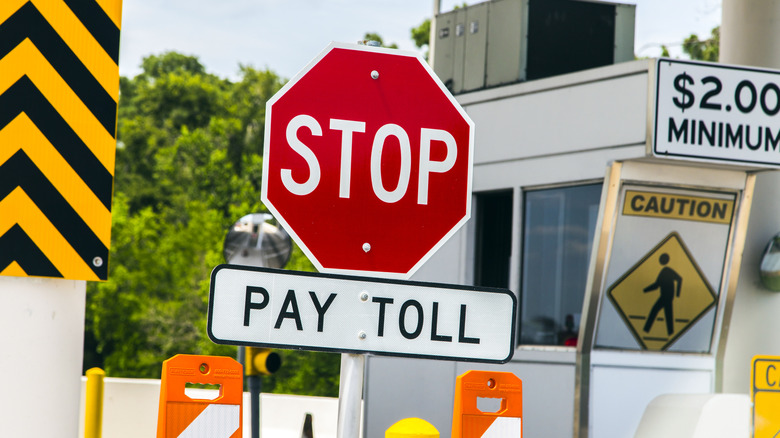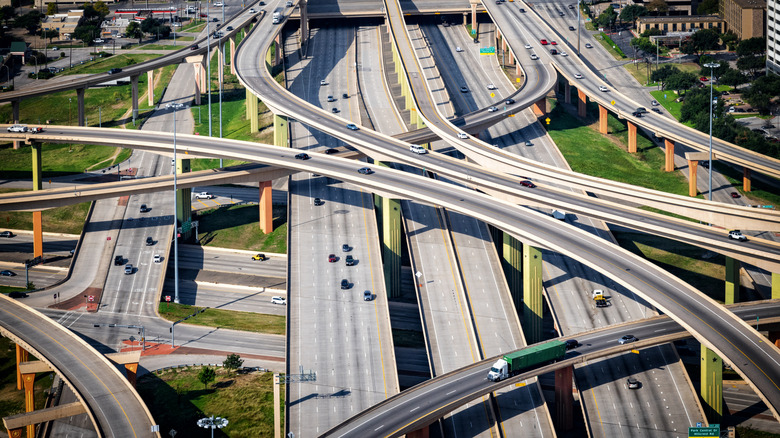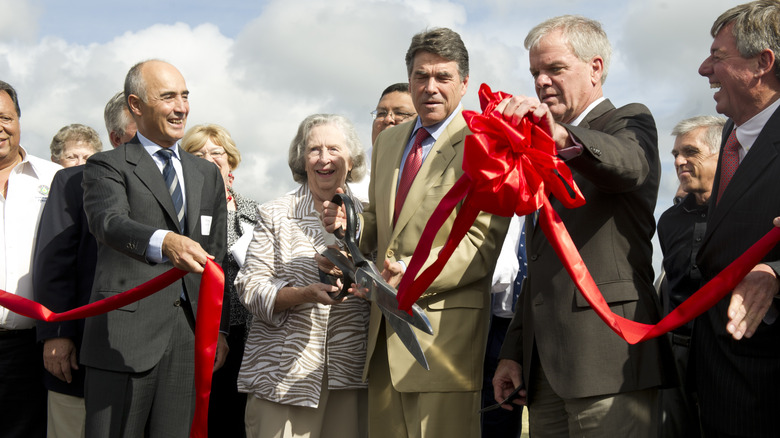No, Chinese Companies Don't Have A Stake In Texas Toll Roads - Here's Who Owns Them
For many drivers, a common question about toll roads is whether Google Maps can help avoid them. But in a bizarre twist, Texans found themselves driving headlong into the junction of globalization, cybercrime, and local politics when a Chinese criminal operation caused some Americans to question the ownership of their local toll roads.
Since January 2025, the FBI has been hit with over 2,000 complaints from residents of states like Georgia, California, Washington, Florida, and Colorado who received text messages asking them to pay delinquent toll-road fees. The "smishing" text scheme, in which SMS phishing messages are designed to trick victims into sharing sensitive financial information or downloading malware, is suspected to come from a kit made popular by a prolific Chinese cybercriminal group. With some messages coming from phone numbers with foreign country codes, some recipients have asked whether foreign entities own their local toll roads.
One state where this question has become prominent is Texas, where some residents have asked whether their cash winds up in the pockets of Chinese investors. These questions came to light when the smishing scam impersonated messages from the North Texas Toll Authority. According to a report by cyber investigator Brian Krebs, victims who followed the smishing links were taken to spoofed versions of the toll authority's website, where they were prompted to divulge enough personal payment information for scammers to add their cards to mobile wallets. Cybersecurity experts have uncovered over 10,000 domains for the scam.
A network of public-private toll roads
If Texas ever needed rebranding, it could call itself the Toll State. Following state legislation in 2003, Texas acquired much-needed government revenue without increasing taxes by building 628 miles of toll roads — nearly as much as the rest of the country combined. This explosion was fueled partly by the state's use of "concessions," which would award companies the right to finance, build, and operate the state's toll roads for a fee, expanding development while giving the state cash up front.
Although outsourcing toll road operations to private investment is common in the U.S., it garnered criticism from residents and legislators alike, citing disproportionate profit margins, lack of transparency, a dearth of public oversight, and agreements that hampered the construction of free public options. Concerns over the ownership of Texas' private roads hit a critical point in 2024 following a series of investigations by The Dallas Morning News into its toll network, spurred in part by the state's prosecution of delinquent toll fees.
As of 2024, Texas' toll roads were managed by a mishmash of operators: the Texas State Department of Transportation, regional mobility authorities, county-level authorities, and private companies. North Texas has the greatest concentration of these roads, accounting for up to a third of all highways in counties in the Dallas-Fort Worth area. There are five privately owned toll roads in the Austin, Dallas-Fort Worth, and Houston areas. While several of them are owned by foreign firms, none is tied to Chinese companies.
Who owns Texas' private toll roads?
By far the largest owner is the Spanish company Cintra Concesiones de Infraestructuras de Transporte S.A., whose American subsidiary operates three private toll roads in Dallas-Fort Worth. Ultimately, Cintra is under the Spanish conglomerate Ferrovial. Per Ferrovial's most recent shareholder disclosures, the largest shareholders are the children of its deceased founder, Raphael, Leopoldo, and Maria del Pino y Calvo-Sotelo, who account for roughly a third of the company's ownership. American and British hedge funds BlackRock, Lazard Asset Management, and The Children's Investment Master Fund also own substantial stakes.
The Spanish conglomerate also previously operated the 41-mile stretch of State Highway 130 near Austin through SH 130 Concession Company, a partnership with Texas-based construction firm Zachry Corporation. After filing for Chapter 11 bankruptcy in 2017, SH 130 Concession was bought in a debt-for-equity swap by its newest majority owner, Connecticut-based Strategic Value Partners.
The fifth private toll road is the 10-mile State Highway 288 corridor stretching from Houston toward the Gulf of Mexico. These toll lanes are operated by Blueridge Transportation Group LLC, an American subsidiary of a different Spanish conglomerate, Grupo ACS. But in October 2024, the Texas Department of Transportation ended its operating contract with Blueridge and began the process of taking over its operations.
Despite this influx of foreign investment, no Texas toll road is owned by Chinese companies. So while private toll-road management companies have come under fire for improperly managing the state's highways, potentially contributing to a deadly pile-up in one instance, residents can't blame Chinese investors for Texas having some of the most dangerous roads in the U.S.


